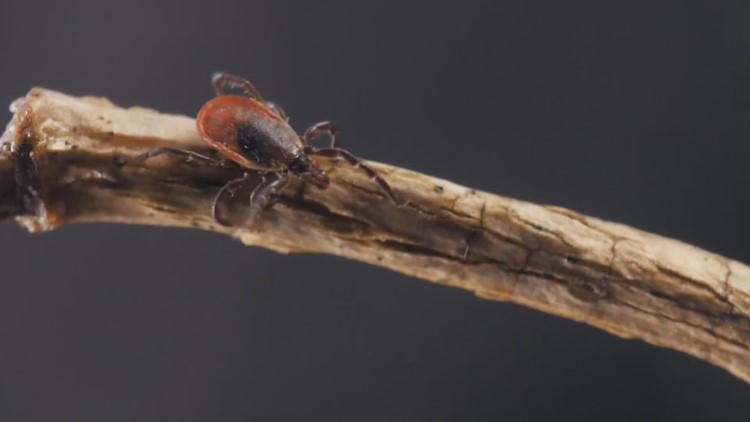PENNSYLVANIA, USA — The Wolf administration reminded Pennsylvanians on Monday to protect themselves against the dangers of mosquito and tick-borne illnesses this fall.
So far this year, Pennsylvania has reported 14 human West Nile virus cases, including one death in Philadelphia County and one death in Franklin County.
“Autumn is a wonderful season to spend time outdoors and participate in many activities, such as hiking and observing the fall foliage, but we want to make sure people protect themselves when they are outside,” said Acting Secretary of Health and Physician General Dr. Denise Johnson.
“Both ticks and mosquitoes carry a number of serious diseases. It only takes a few minutes to prepare and protect yourself from these diseases," Dr. Johnson continued.
Before heading outdoors, experts recommend covering exposed skin, wearing light-colored clothing to help with insect detection, tucking your pants into your socks and using federal EPA-approved insect repellent. Residents can also treat their clothing with a product containing permethrin to repel ticks.
Adult black-legged ticks, also known as deer ticks, are the most common carrier of Lyme disease and are the only tick species that is active during the fall and winter months in Pennsylvania.
These ticks emerge during the fall and are typically active during the winter months on days when the temperature is above 40 degrees. In addition to Lyme disease, these ticks also can carry several other diseases, such as Anaplasmosis, Babesiosis and Powassan Virus, that have been reported in the state.
Ticks typically thrive in tall grass, brush and wooded areas, but deer ticks can live in any habitat and have been found in every county in the state.
Once returning home, immediately check yourself, your children and your pets for ticks. Then, take a shower to remove any ticks that may be attached to your skin. Carefully check your clothing and gear and put them in the dryer on high to kill any ticks.
Areas to check where ticks can become attached are:
- Under the arms
- In and around the ears
- Inside belly button
- Back of the knees
- In and around the hair
- Between the legs
- Around the waist
Symptoms of Lyme disease can include a bulls-eye rash, fever, chills, headache, fatigue, muscle and joint aches, and swollen lymph nodes. It is important to know that someone bit by a tick carrying Lyme disease may not always get a bulls-eye rash.
Tick surveillance will continue throughout the fall and winter on warm days above 40 degrees.
Most states in the northeast and mid-Atlantic areas of the United States, Pennsylvania included, see a second peak of anaplasmosis in the fall due to bites from adult deer ticks. Symptoms of anaplasmosis can include a fever, chills, headache, fatigue, nausea, vomiting and diarrhea.
Although mosquitoes can bite at any time of the day or night, the mosquitoes that transmit WNV are most active at dawn and dusk. To keep mosquitoes from entering a home, make sure window and door screens are in place and are in good condition.
Reduce your chance of being bitten by an infected mosquito by eliminating standing water around your home.
West Nile virus (WNV) is spread by mosquitoes that breed in areas with standing and stagnant water. These areas include urban catch basins, clogged gutters, discarded tires, poorly maintained swimming pools, flowerpots, roof gutters and other containers that hold water.
Reduce your chance of being bitten by an infected mosquito by eliminating standing water around your home.
WNV can cause serious neurological infections, including encephalitis and meningitis. Symptoms of these infections include a severe headache, high fever, muscle weakness, neck stiffness, paralysis, possible confusion and disorientation, tremors, and even death.
For more information on ticks and mosquitos, click here.



